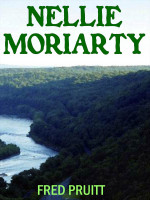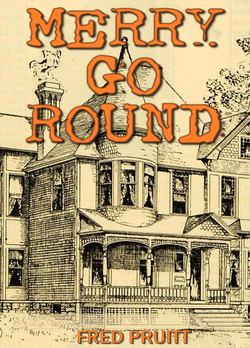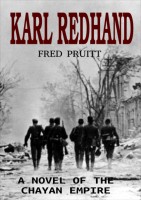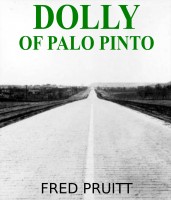|
2025-07-09 Caucasus/Russia/Central Asia
|
|
'America's Fall from Europe': How Russia Has Saved the US More Than Once
|
Direct Translation via Google Translate. Edited.
by Mikhail Kucherov
[REGNUM] Russia may revise the list of unfriendly countries, which currently includes the United States. In fact, this list is not a dogma, Kremlin Press Secretary Dmitry Peskov noted on June 8, speaking about the possibility of restarting contacts between Moscow and Washington. Vladimir Putin and Donald Trump stated in a telephone conversation on July 3 that relations between our country and the United States have deep historical roots.

Moreover, as Putin noted both in his conversation with Trump and in a recent interview, Russia played a decisive role in the very emergence of the United States. Indeed, when a new state appeared on the map in 1776 – the United States of America – it was a surprise for the entire world. But not for our country.
Even before the start of the War of Independence, in the autumn of 1774, the Russian envoy to London, Alexei Musin-Pushkin, reported to St. Petersburg about the uprising being prepared in England’s 13 North American colonies. The diplomat called for the brewing conflict to be treated as “worthy of any serious note.”
Musin-Pushkin explained to Catherine's nobles: the war between Britain and the American colonists "seems all the more inevitable because they (the Americans) have been driven... to extremes." Therefore, they can no longer obey English "legislations" and will resist them "as burdensome and restrictive of their natural and legal rights."
Informed sources overseas told our diplomat that "the people there, leaving their usual trades, voluntarily engage in military exercises. This spirit of hostility equally infects all ranks and titles."
When on April 19, 1775, Massachusetts militia defeated Colonel Francis Smith's detachment at Lexington, London realized that it was impossible to suppress the separatist movement by police measures. Especially since after the first successes of George Washington's army, the war between the self-proclaimed USA and Britain was closely watched by the main rivals of the English - the French (since 1778, Louis XVI officially sanctioned the entry of the kingdom into the war).
That is why, at the very beginning of the uprising in the colonies, the English King George III desperately sought allies. Turning his gaze to the Russian crown, the British monarch asked Catherine II to send an auxiliary corps of 20 thousand people to America.
Not long ago, during the Russo-Turkish War of 1768-1774 and the Russian fleet's campaign from the Baltic to the Mediterranean, England essentially helped Russia. The Royal Navy did not allow a French squadron into the Mediterranean, ready to help the Turks (France's long-standing partners). Of course, this was not about Albion's altruism, but about the enmity between the English and the French, but, acting in their own interests, the British objectively played in our favor. And now they were waiting for reciprocal favors.
Without waiting for Catherine's response, the English prepared the text of the corresponding agreement. The response from St. Petersburg was negative, although diplomatic - with a sober-sounding thesis that the Russian Empire needed peace.
"With all my heart I wish that my English friends would get along with their colonies... But so many of my predictions have come true that I fear that in my lifetime we will have to see America break away from Europe," the empress prophetically noted. Russia also acted in its own interests.
Britain not only tried to defeat the separatists on the battlefield, but also strangled the rebellious colonies with a naval blockade, cutting off the flow of goods to America. The Russian Empire (guided by the principle of free trade, which, we note, was bequeathed by the British economist Adam Smith ) did not want to participate in the blockade.
That is why in 1780 St. Petersburg adopted a declaration of armed neutrality. Our country warned the great powers and England first and foremost that it would defend its right to free trade. It is curious that it was after this declaration that France openly supported the American colonists, and at the same time Holland, England's long-time rival at sea, joined in supporting the rebels.
The rebels could not help but appreciate Russia's involvement in their fate. Washington declared that Catherine's decision "bears the imprint of respect for the rights of humanity." As we see, even then the US began to appeal to human rights when it was advantageous for them - and then our country, which in Europe was accustomed to revile for "Asian despotism," suddenly turned out to be their stronghold.
The US Continental Congress, after reviewing the document, adopted a separate resolution, fully approving the Russian declaration and notifying the St. Petersburg envoy to The Hague, Dmitry Golitsyn, in writing; according to many historians, this is the first diplomatic document exchanged between the countries.
The American Revolution, as we know, resulted in the Treaty of Paris in 1784 (initiated by Louis XVI, who, by historical irony, soon fell victim to the revolution in his own country). The mistress of the seas, England, recognized 13 of its former overseas possessions as sovereign and independent states and renounced its claims to govern them. Such a "happy ending" would not have happened if not for the intransigence of Catherine the Great.
It is understandable why, on the sidelines of the Peace of Paris, Benjamin Franklin handed over to the Russian envoy Ivan Baryatinsky “the book-constitution of the United American Provinces and a medal struck for their independence” for subsequent sending to the empress.
So the two Founding Fathers that Americans should know at least from their images on dollar bills – Washington and Franklin – were also the founders of Russian-American contacts at the highest level.
CALIFORNIA BALLS
The Americans repaid Russia with approximately the same kind of benevolent neutrality during the Crimean War, sending 30 surgeons and 15 engineers to the tsarist army units besieged by Anglo-French troops, who were engaged in laying railway tracks.
Petersburg went further at this stage of Russian-American interaction: formally maintaining neutrality, several years later it sent two naval squadrons to America, which was engulfed in civil war, to help the northerners. The St. Andrew's flag off the coast of New York and California became a symbol of protection from a possible attack by the French and British fleets for the local population.
Alexey Bogolyubov. Russian squadron on the way to America. 1880s
According to eyewitnesses, the Russian sailors were surrounded by the attention of Secretary of State William Seward (the same one who organized the deal to purchase Alaska), congressmen and members of their families:
"Your Excellency, of course, already knows from the newspapers with what sympathy we have been received here. On the 5th, the city of San Francisco gave a ball as a sign of general favor to the sovereign and Russia, which in the annals of San Francisco will certainly remain as the most magnificent on the shores of the Pacific Ocean," wrote Rear Admiral Andrei Popov in 1863 to the naval minister of the Russian Empire, Nikolai Krabbe.
Recordings of speeches from farewell banquets have survived, where Americans highly praised the “ sense of international brotherhood ” and “ moral assistance ” brought by the Russians.
According to newspaper headlines of the time, many parents in the United States began to name their children Ivan or simply Russian.
There are also known cases of direct participation of Russians in military actions. Colonel Ivan Turchaninov, without sanctions from the command, joined the northerners and, having distinguished himself in the battles of Chickamauga and Chattanooga, not only became John Turchin, but also received the stars of a brigadier general.
John Turchin in the uniform of the 19th Illinois Regiment commander.
Abraham Lincoln, whose authority grew thanks to the presence of Russian squadrons, did not hesitate to call Russia “ despotism in its purest form,” but he did not remain in debt - he saved Turchaninov, who was brought to trial during intrigues, by raising him to the coveted rank: in the USA, army arbitration had no jurisdiction over generals, which allowed the military leader to avoid going to jail.
True, later the soldier, considered a deserter in his homeland, began to criticize the American socio-political order:
“My disappointment is complete; I do not see any real freedom here. <…> This republic is a paradise for the rich; they are truly independent here; the most terrible crimes and the blackest intrigues are repaid with money. <…> As for me personally, I thank America for one thing: it helped me to kill outright the lordly prejudices and brought me down to the level of an ordinary mortal <…> no work is terrible for me.”
"OBLIGATED FOR HELP"
Historical sources preserve the memory of years of friendship, pragmatic on the political level and quite sincere on the human level.
Mark Twain, who visited Crimea with a group of his compatriots, was fortunate to have an audience with Alexander II, whom he considered more majestic than Napoleon and the Turkish Sultan. The writer openly admitted that America owed much to Russia for its help during the "great disasters."
It is unknown how long it will take for a constructive seed to sprout in the current dialogue between Moscow and the current American administration. But it is obvious that Russia, as it did 150 years ago, wants to act in accordance with the principles of “preserving the American Union as an undivided nation” voiced by the outstanding Alexander Gorchakov.
These two historical episodes became prototypes of further rapprochement in relations between the USA and Russia. One can recall the mediating role of Theodore Roosevelt in stopping the Russo-Japanese War - essentially inspired by Britain to the common disadvantage of Russia and the USA.
The two powers were allies in World War I. Incidentally, a curious piece of evidence of this has been preserved in St. Petersburg: during the Great War, an image of the US coat of arms, a bald eagle with a star-spangled shield, was installed on the roof of the representative office of the American firm Singer (which almost everyone considered a German firm because of the owners' surname). Thus, Singer's house on Nevsky avoided German pogroms.
Finally, the most recent rapprochement that Donald Trump also recalls is the joint fight against Nazism and Japanese militarism in World War II. But the American leader, who claims that it was the United States that was the main victor over Hitler, would do well to remember how our country saved the United States – in the 1770s, the 1860s, and the 1940s.

|
Posted by badanov 2025-07-09 00:00||
E-Mail||
Front Page|| ||Comments
[44 views ]
Top
|
|
14:42 Frank G
14:23 swksvolFF
14:12 49 Pan
14:11 49 Pan
14:04 Cesare
13:19 Regular joe
13:17 swksvolFF
13:11 Besoeker
13:07 mossomo
13:04 mossomo
12:57 mossomo
12:47 mossomo
12:45 mossomo
12:41 mossomo
12:40 bman
12:38 mossomo
12:38 mossomo
12:25 Herman Elmavilet2069
12:15 Abu Uluque
12:13 Besoeker
12:05 Hupoluth Dribble3876
10:31 Rex Mundi
10:21 Frank G
09:53 NN2N1
Merry-Go-Blog









|











